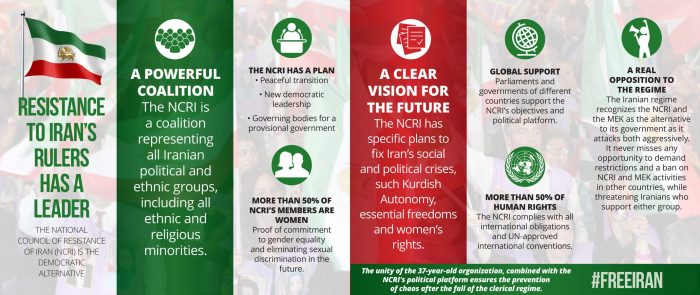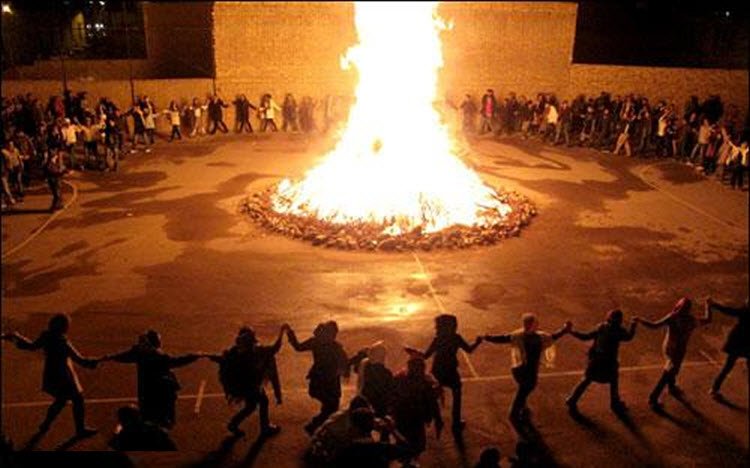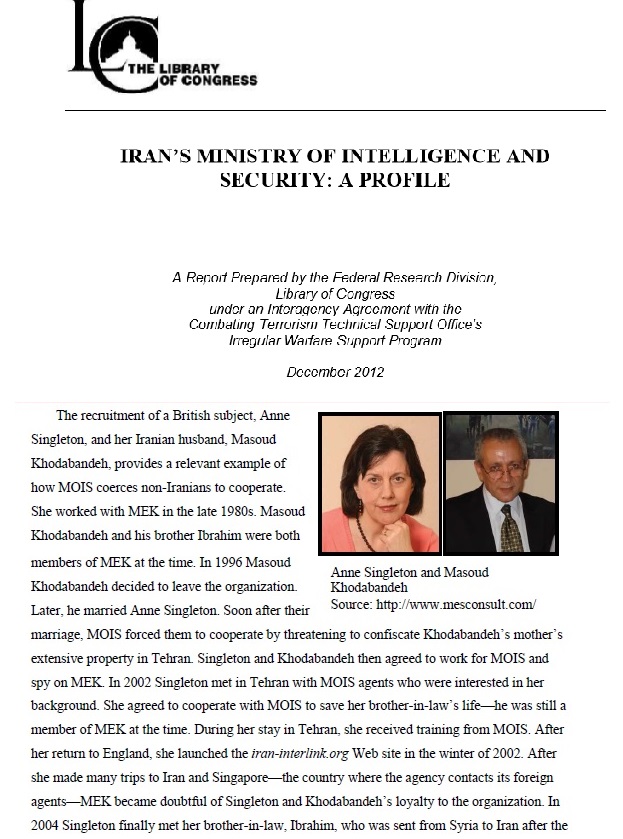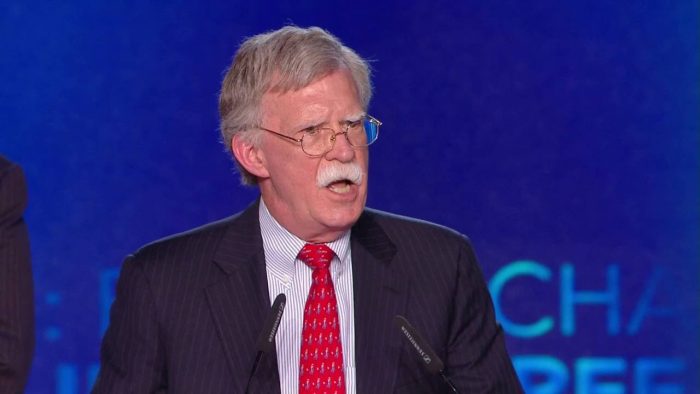POLITICAL PLATFORM
Demonstrations were staged in cities across Iran to take place during the yearly Fire Fest celebration, which marks the last week of Iran’s calendar year.
ISJ Report Warns of Potential Attack on MEK in Albania On Wednesday the International Committee In Search of [...]
John Bolton represents a new chapter in US-Iran relations Donald Trump’s appointment of John Bolton as the president’s [...]

The National Council of Resistance of Iran (NCRI)- Iranian regime’s most organized opposition, and the only viable alternative to the ruling dictatorship in Iran.
The National Council of Resistance of Iran (NCRI) is a broad coalition of democratic Iranian resistance groups and organizations founded by Iranian Resistance leader Massoud Rajavi in Tehran in 1981. The NCRI’s mission is to bring freedom and democracy to Iran.
A Parliament-in-Exile
The NCRI stands ready to establish a democratic and secular republic in Iran, based on the separation of Mosque and State. In the meantime, the NCRI operates as a parliament-in-exile with more than 500 members. Representatives include ethnic and religious minorities, such as Kurds, Baluchis, Armenians, Jews and Zoroastrians, and people from a broad spectrum of political ideologies. 50 percent of the NCRI’s members are women, and women make up half of the organization’s leadership. Five organizations are represented within the NCRI, including the Mujahedin-e Khalq (MEK), the largest and most popular resistance organization in Iran.
MEP Anthea McIntyre in the EU Parliament conference:
There is a democratic alternative to this regime. It is led by #MaryamRajavi and her ten-point plan. Many members of the EU Parliament support her.#NoImpunity4Mullahs #FreeIran pic.twitter.com/LSjcuJSqYH— MEK Iran (Mujahedin-e Khalq) (@MEK_Iran) October 23, 2019
The NCRI is governed by a set of guiding principles, which are explained below:
Democratic Decision-making
Each member of the NCRI has one vote. Decisions are made with a simple majority vote.
Six-month Provisional Government
After the ruling Iranian regime is overthrown, the NCRI’s 25 committees will step in as the provisional coalition government. Each committee is chaired by a prominent and well-qualified political figure. The provisional government will remain in power for six months while democratic elections are held. Its main functions are to hold free elections for a National Legislative and Constituent Assembly, to ensure that those elections are fair, and to peacefully transfer power to the elected representatives of the people of Iran.
President-elect Maryam Rajavi
Mrs. Maryam Rajavi is the President-elect of the NCRI. Her role is to preside over the provisional government during the peaceful transition of power to the Iranian people until a democratic government is in place.
Did you know:
25yrs ago this day,in its plenary session,#NCRI,the democratic coalition of #Iranian opposition orgs. &prominent personalities, elected @Maryam_Rajavi as the President-elect 4the transitional period after the mullahs’ overthrow.#freeIran https://t.co/SvZFPUaHHO pic.twitter.com/mp5yTt19LS— MEK Iran (Mujahedin-e Khalq) (@MEK_Iran) August 27, 2019
National Solidarity Front
In November 2002, the NCRI adopted a plan to overthrow the clerical regime ruling Iran. The National Solidarity Front was described by Mrs. Rajavi as
“a reflection of the most profound democratic yearnings of all the people of Iran, regardless of ideology, belief, religion and ethnicity that transcends all partisan and political interests,” adding that the Front “embodies the unshakable resolve of the Iranian people to overthrow the mullahs’ inhuman regime.”
The National Solidarity Front will include all Iranians who want to overthrow the regime in favor of a secular republic.

The National Council of Resistance of Iran (NCRI) the viable alternative to the dictatorship in Iran
The NCRI’s Platform
Human Rights
The NCRI is firmly committed to abolishing the death penalty and adheres to the Universal Declaration of Human Rights. The NCRI is also committed to freedom of association, freedom of thought and expression, a free press, freedom of political parties, freedom to participate in trade unions and councils, freedom of religion and denomination, and freedom of profession; as well as prevention of violation of individual and social rights and freedoms.
Women’s Rights
The NCRI recognizes “the right of women to elect and be elected in all elections, and the right to suffrage in all referendums,” “the right to employment and free selection of profession, and the right to hold any public, office or profession including the presidency or judgeship,” “the right to freely choose clothing and covering,” and “the right to use, without discrimination, all instructional, educational, athletic, and artistic resources; the right to participate in all athletic competitions and artistic activities.”
Economics
The NCRI supports national capitalism, the market economy, private ownership, and private investment. It believes that utilizing scientific and technological advances is essential to creating and maintaining a healthy economy, and it considers relations with the industrialized world as integral to the reconstruction of the Iranian economy.
Freedom of Religion
The NCRI is committed to the separation of Church and State. Its members have ratified a platform stating that “all forms of discrimination against the followers of various religions and denominations in the enjoyment of their individual and social rights are prohibited. No citizen shall enjoy any privileges or be subject to any deprivations with respect to a nomination for election, suffrage, employment, education, becoming a judge or any other individual or social rights, for reason of belief or non-belief in a particular religion or denomination.”
National Minorities’ Rights
The NCRI affirms the rights of all ethnic and national minorities. It believes that Iranian Kurdistan should be autonomous and has adopted a plan to make this a reality. The NCRI’s platform specifies that “the administration of all the affairs of the autonomous region of Kurdistan,” except for those related to foreign policy, national defense, national security, foreign trade, and customs, “falls within the authority of the autonomous institutions.”
International Relations
The NCRI’s foreign policy is based on independence, respect for and adherence to the United Nations Charter and international conventions and treaties, good relationships with neighboring countries, and regional and international non-interference in the internal affairs of other countries.
The NCRI supports the ongoing work toward peace in the Middle East and is deeply committed to promoting and protecting peace and tranquillity in the region. It condemns any act of aggression or expansionism in the Middle East, and it opposes nuclear proliferation and the production of ballistic missiles and weapons of mass destruction.



